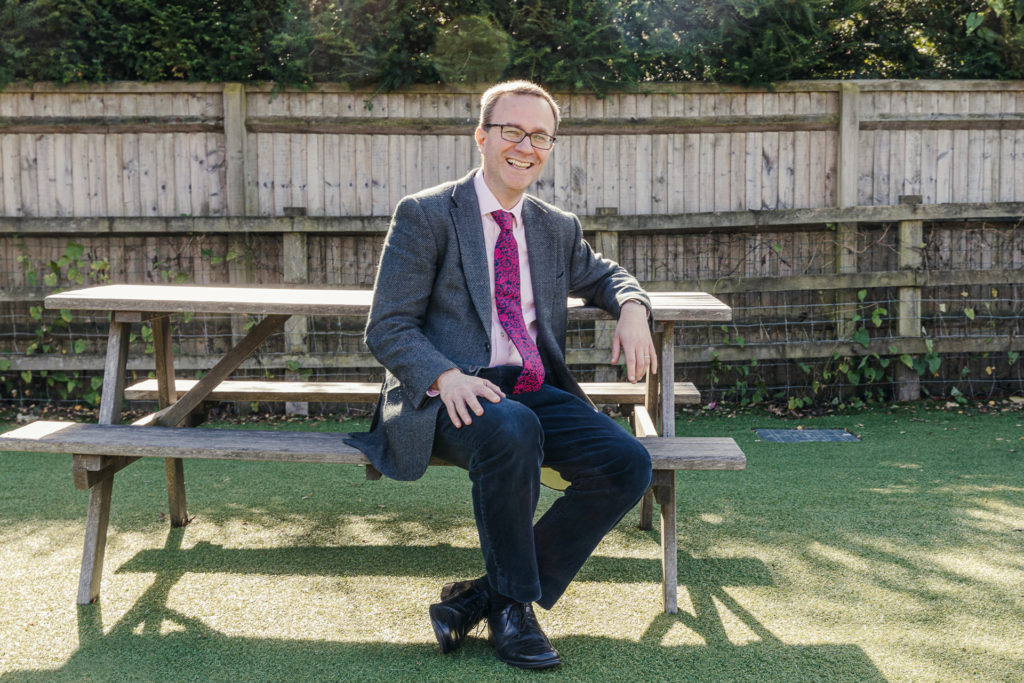What Do You Wish You Had Been Taught in School?
By
2 years ago
Simon Detre considers the importance of skills in the world of ChatGPT
I regularly see lists on social media entitled ‘things I wish I had been taught’. Reading these, I sometimes feel annoyed, sometimes bemused…and occasionally I wonder whether they might be right! Some are lists of platitudes (‘choose joy’); others I have seen include ‘what to do in a power cut’ and ‘how to dance a Ceilidh’!
What would be on your list? And how should schools respond? We cannot reinvent the curriculum to accommodate every social media trend, but we do need to be nimble, given the extraordinary pace of change in the world around us. Artificial Intelligence (AI) and the ease with which, through tools such as ChatGPT, we have access to phenomenal computing power, raise fundamental questions about the role and purpose of education.

AI has the potential to transform access to education. In 1999, Sugata Mitra did an experiment: he left an internet-connected computer in an urban slum in New Delhi, with a hidden camera. Local children taught themselves how to use it and started learning from it. This became known as the ‘Hole in the Wall’ experiment and showed how, without any formal teaching, children can learn new skills. Imagine the possibilities of a ‘Hole in the Wall’ computer with access to ChatGPT!
AI is as significant as the Industrial Revolution in terms of the change it will wrought. The Industrial Revolution saw new technology replace the need for laborious tasks. The broadcaster Lucy Winkett has observed how ‘arms and legs that farmed, that made tools, that built buildings, were replaced with machines who could do the same jobs faster, for longer…
In this twenty-first century revolution, it’s the human brain that’s being replicated, by a bot that can do more, more quickly, more accurately, and doesn’t tire.’
What the Industrial Revolution and the AI revolution have in common is that technology develops faster than the legislation needed to regulate it. During the Industrial Revolution, many people died because Health and Safety didn’t exist in the eighteenth century; now, Elon Musk has called for a pause in the development of AI, citing potential risks to society. But the genie is out of the bottle and much of the work to regulate use of AI by children will fall to schools.
When social media first arrived in schools around the turn of the century, the initial response of educators was to block access. As Facebook and the others became more and more ubiquitous (again, faster than the regulation needed), school leaders realised the only solution was to embrace social media and educate children in how to use it safely. Now we face a similar situation with AI and if we simply try to block the technology, we will be left behind.
Even in the face of this revolution, I believe there will always be a role for schools. For example, by offering breadth of opportunity and enabling students to try out lots of different activities, schools can help children discover things they are really good at. An example at The Beacon is our Master Cook competitions, which offer boys the opportunity to develop their skills in the kitchen and learn from professional judges about how to run a successful restaurant. Even in the age of AI, people need to eat!
Reading is an obvious and essential skill where human teachers still have a role. I have the privilege of teaching Year 8 English and lessons at The Beacon almost always begin with a short period of silent individual reading. When we recently read ‘Of Mice and Men‘ together, I was struck by my students’ thoughtful responses to its gritty and uncomfortable themes.
I believe that team sports – with all the associated life lessons (team work, respect, winning and losing and so on) as well as the importance of fresh air and exercise, remain fundamentally important and should be taught in schools.
In the Upper School at The Beacon we offer the PSB, with its emphasis on skills, because we believe there is the need more than ever for students to reflect on and develop awareness of where their skills lie. In the age of social media, our brains are constantly fliting from one thing to another and we rarely stay still for long to focus on one thing (will anybody reading this actually read the whole article from start to finish in one go? Let me know if you do!).
Oliver Burkeman sums it up: ‘we seek out distractions online, where it feels as though no limits apply – where you can update yourself instantaneously on events taking place a continent away, present yourself however you like, and keep scrolling forever through infinite newsfeeds, drifting through ‘a realm in which space doesn’t matter and time spreads out into an endless present’.
Children at school in the UK in 2023 are very unlikely to have a single career lasting forty years, because AI will render obsolete jobs currently done by humans. This is why schools, universities and employers seek not only evidence of academic, sporting, creative learning and achievement but also skills and attributes such as communication, collaboration, resilience and empathy.
As Matthew Syed points out: ‘labour experts predict that the children of today will have as many as a dozen jobs, the majority of which haven’t yet been invented. In a fast-moving world, we will need to master not merely the art of invention but of personal reinvention. This is a world ripe for people who can question the status quo, and who can travel beyond boundaries, not least the ones we impose upon ourselves.’
A willingness to step outside one’s comfort zone and try something new can broaden horizons. I wish I had been taught how to dance a Ceilidh because I have signed up to be the ‘caller’ for our staff Ceilidh band! I asked ChatGPT about this, but as a teacher I gave it 6/10 when it suggested I should ‘practice the dances’ (rather than ‘practise the dances’) – clearly spelling and grammar still have a role to play in schools!
Simon Detre is Deputy Head (Academic & Digital) at The Beacon
Read more:
Sibford School Announces New Head | SLT’s Guide to the 11+ Consortium Test



